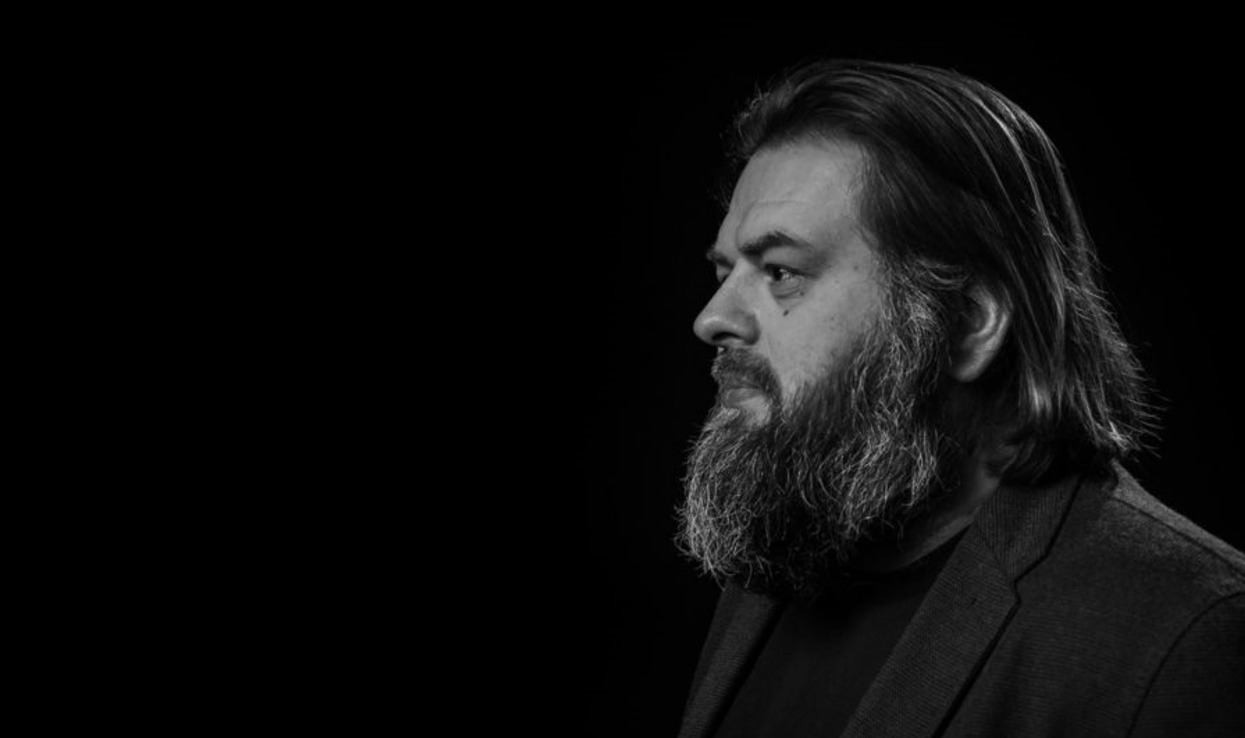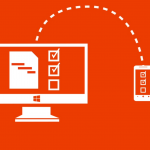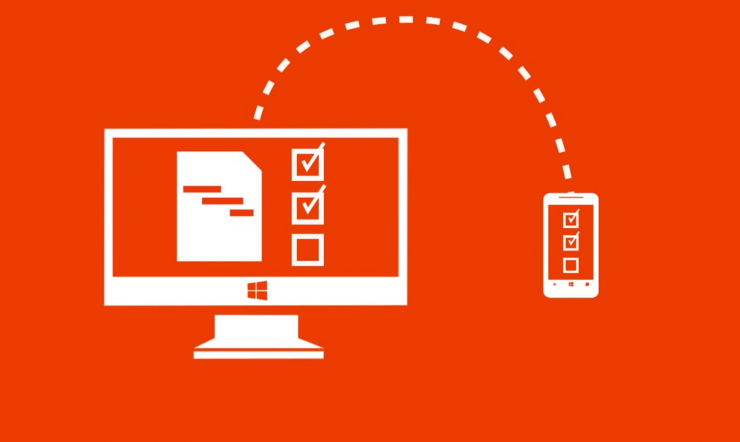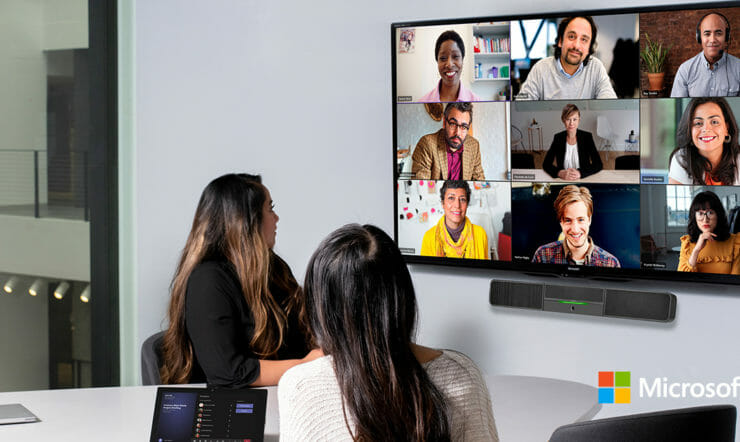Hybrid Talk is an article series hosted by Microsoft Denmark. We have invited thought leaders, companies, and organizations to share their views on the modern way of working and how technology supports the hybrid model. Is the new normal here to stay or does it even make sense to talk about normality in a world-changing faster than ever? We will explore this and a whole lot more in this series.
Still curious? Learn more and be inspired at our site dedicated to exploring hybrid work here.
Do the extra thinking!
He hates the word management guru, but his impressive CV, which doesn’t lack fine titles, includes some of the world’s finest universities, large companies, and the Armed Forces. Still, Michael Andersen prefers to be called a Management Philosopher. The solid theoretical ballast combined with his practical experience makes Michael Andersen a sought-after keynote speaker and advisor. Microsoft Denmark’s HR director, Camilla Hillerup, has met Michael Andersen to discuss whether you can define good and poor management and how leaders navigate a new, hybrid reality where much has changed.
“We have become obsessed with simplifying things,” Michael Andersen is kicking off the interview. “To reduce complexity and make everything simple. It’s very human when facing uncertainty, but it doesn’t necessarily help us find a solution. Instead, we should stop and allow ourselves to reflect and do the extra thinking”. This is how Michael Andersen answers the question about what he thinks is the biggest challenge facing leaders and organizations in adapting to a hybrid working reality with many new preferences and structures.
HR director at Microsoft, Camilla Hillerup, agrees: “Sometimes we must slow down, think things over an extra time to be able to run both faster and more efficient in the long term. There is no better time than now to do so because the dices have been rolled, but no one quite knows where they will land. Organizations have a range of possibilities that they need to explore and research further just now. They regard everything from how much flexibility we can and will offer to whether organizations have the right digital tools and whether managers and employees share the same worldview on how the good working life looks like,” she says.
 People and organizations should preferably develop together. Modern work shouldn’t only be about the needs of the individual and can’t only be about the needs of the organization.
People and organizations should preferably develop together. Modern work shouldn’t only be about the needs of the individual and can’t only be about the needs of the organization.
– Michael Andersen, Management Philosopher.
The hyper-individualistic society?
Camilla Hillerup admits that it is easy to take the bad habits with you and continue to work around the clock, where the only things changing is the platform and the location you work from. “As you know, bad habits are hard to kick, so we cannot just continue business as usual – just in new surroundings. Fundamentally, we need to revise how we – simultaneously – are satisfied as humans and as employees and leaders. And if you don’t consider this for yourself, then just take a look at the global trends and data”.
Camilla Hillerup refers to Microsoft’s Work Trend Index, which shows that new trends are emerging – indicating a shift in paradigm. “As many as 53% say that they are more likely to prioritize health and well-being over work compared to before Covid-19”, she says and continues: “We don’t want to work as much, as inflexible, or without goals or purposes. And if we don’t get what we want, we clock out and find another job. In many ways, we are moving towards a hyper-individualistic society, where a person’s needs and wishes are out in the open with high expectations that employers will meet them”.
Michael Andersen recognizes the image of the individualistic labor market with the employee at the center, but he doesn’t necessarily believe that it is a healthy development. “People and organizations should preferably develop together. Modern work shouldn’t only be about the needs of the individual and can’t only be about the needs of the organization. Mainly because our needs are different; I think it’s important that everyone shows up for the team meeting Monday morning, but you might feel it can be done over Teams – what needs are we then to meet?” he asks.
 In reality, management is about three things; leaders need to set direction, remove external threats and ensure internal peace – and this is far more difficult now and before.
In reality, management is about three things; leaders need to set direction, remove external threats and ensure internal peace – and this is far more difficult now and before.
– Michael Andersen, Management Philosopher.
Leadership shouldn’t be over-intellectualized
And then we’re back at management and how to define good and poor leadership. Something that Michael Andersen isn’t sure even makes sense to coin. “Good management will always depend on the context. We are used to thinking that transparency is a good leadership trait. But in the Armed Forces, you cannot always work with transparency. Involvement is also good. But if you are a firefighter you need to put out the fire safely and effectively without worrying about involvement. It is context-dependent. Therefore, we must be careful not to over-intellectualize leadership too much. Management is human and very practical”, he says and refers to the fact that 356 billion dollars are spent annually on management development, but management challenges still occur in many organizations. A claim backed by the Work Trend Index. In this, 57% of middle managers state that they believe top managers are out of sync with the needs of the employees.
Nevertheless, Camilla Hillerup thinks it is possible to work systematically with your management style. In her opinion, it is primarily about understanding that leadership needs to be redefined in a hybrid world and thus involves far more aspects than previously. “Leaders today need to be coaches and facilitators before they are controllers and supervisors,” she says. “As a manager, you must give more of yourself – some authenticity and personality that resonates with employees. None of us are machines. And behind – or rather in front of – any title, we are all just humans.
Michael Andersen adds: “In reality, management is about three things; leaders need to set direction, remove external threats and ensure internal peace – and this is far more difficult now and before.”
Read our other hybrid talks with:
- Sophie Saxine Lovett, Head of People Advisory for HQ & Europe, A.P. Møller Mærsk.
- Monique Carter, EVP People & Organization, Novo Nordisk.
- Camilla Hillerup, HR-direktør, Microsoft Danmark.
- Morten Albæk, Filosof, forfatter og CEO, Voluntās.
- Lise Dahl Arvedsen, Ph.d., ekspert i hybrid ledelse ved Augmenti og ekstern lektor ved CBS.
- Camilla Thind Sunesen, Head of Concepts & Health Development, Danica Pension.
Listen to our podcast, Tidens Tech.




 People and organizations should preferably develop together. Modern work shouldn’t only be about the needs of the individual and can’t only be about the needs of the organization.
People and organizations should preferably develop together. Modern work shouldn’t only be about the needs of the individual and can’t only be about the needs of the organization.



















